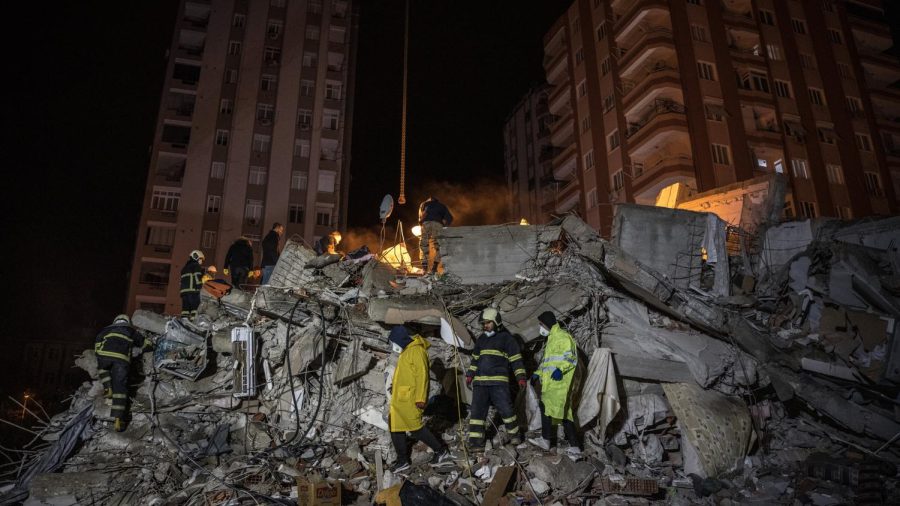Turkey and Syria Slammed by Deadly Earthquake
Search and rescue team looks for survivors in a collapsed building
March 14, 2023
On February 6th, 2023, a 7.8 magnitude earthquake struck southern Turkey and northern Syria, killing over 50,000 people, injuring over 100,000, and displacing millions. Many aftershocks from the initial quake and a second 6.3 magnitude earthquake two weeks after the first have caused even more damage and given residents of the area no time to recover.
World Vision states that the initial earthquake struck early in the morning of February 6th, about 14 miles east of Nurdagi, a city in southeast Turkey near its border with Syria. In both countries, 26 million people are in need of assistance. According to CNN, eyewitnesses to this devastating earthquake explain that entire families were killed, and people that did survive are sleeping on the streets in extremely cold temperatures. Turkish hospitals, many of which were damaged or destroyed by the quakes, also have to treat over 80,000 injured people, which places a major strain on the health system. USA Today reports that the Syrian American Medical Society said they treated many patients, including a 7-year-old boy, who had heart attacks brought on by fear.
The second earthquake, which struck towns along the Turkey-Syria border, occurred on February 20th. The tremors also shook parts of Egypt, Lebanon, Israel, Cyprus, and Jordan, according to USA Today. Some people, terrified, even jumped from balconies to escape buildings during the quake, the New York Times reported. This earthquake killed six people and injured about 300 people, 18 of them critically. Although it was less deadly than the previous quake, it destroyed some of the few buildings that were left standing, making even more people homeless. In the Hatay province of Turkey, the Mayor, Luftu Savas, stated that 80% of the homes and businesses in the province need to be repaired or rebuilt, according to USA Today.
Turkey and Syria have been receiving aid from many countries and organizations. The World Health Organization states they have launched a $43 million appeal to support the earthquake response in both countries. The organization also sent twenty-two emergency medical teams to Turkey to support the medical facilities that have been damaged and provide care to patients. CNN explains that the European Union activated its Civil Protection Mechanism, which is a joint response from EU member states and the eight other participating states that allows for a strong, well-coordinated response to a disaster such as the earthquakes in Turkey and Syria. In addition, the United States is sending two search and rescue teams to Turkey, and Russia has sent ten units of its army with over 300 soldiers to Syria to help with search and rescue missions and to clear debris.
Several other challenges had already been affecting the area before the earthquakes hit. CNN explains that many northern Syrian communities have been fighting a Cholera outbreak and harsh winter conditions. Over 6.5 million children in Syria already needed humanitarian aid due to an ongoing civil war that began in 2011, and the earthquakes have put even more in danger.






